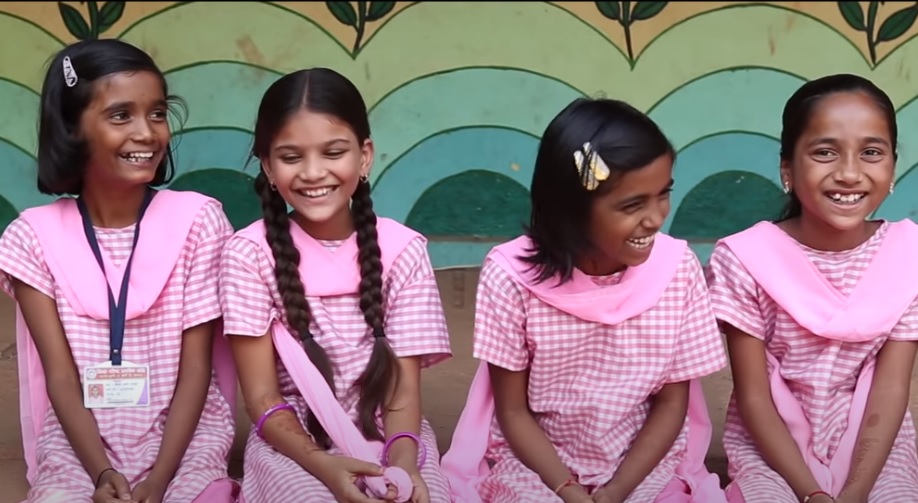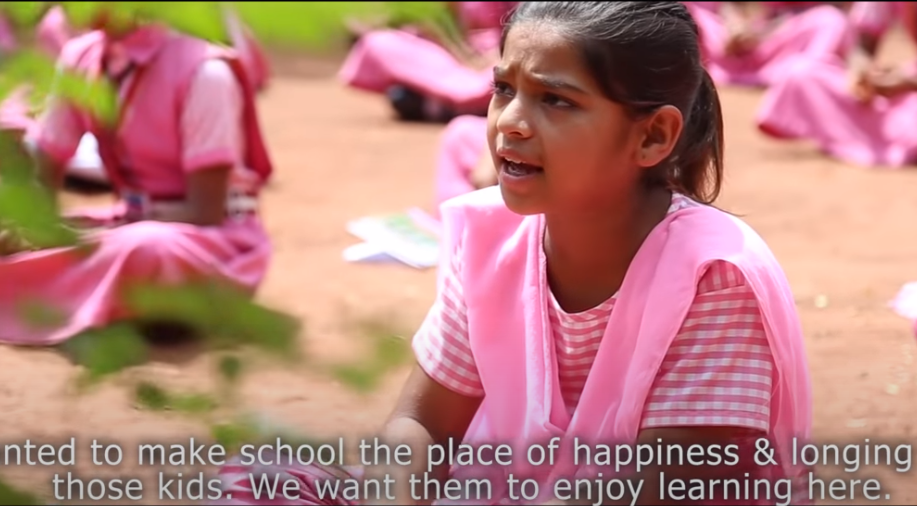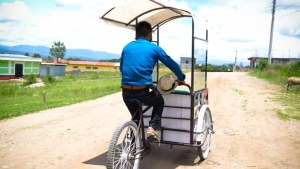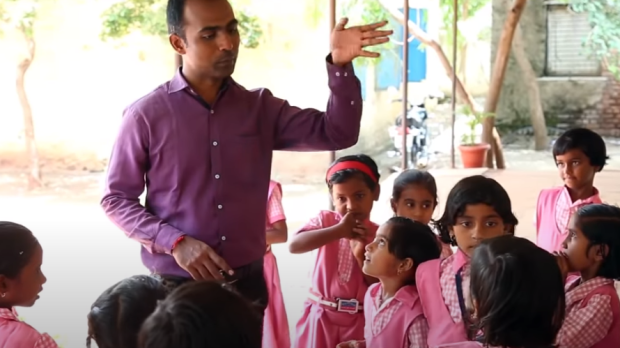His name means “victorious on the battlefield” — a perfect description of his story. Ranjitsinh Disale, a 32-year-old teacher in India, was awarded the 2020 The Global Teacher Prize. The prize initiative was organized by the Varkey Foundation in London with UNESCO.
Disale will receive a $1 million prize, and he has decided to split half of that amount among the other finalists for the prize. Times Now News reports,
Per The Hindu report, Disale said, “Teachers are the real change-makers who are changing the lives of their students with a mixture of chalk and challenges. They always believe in giving and sharing. And, therefore, I am very pleased to announce that I will share 50% of the prize money equally among my fellow top 10 finalists to support their incredible work. I believe, together, we can change this world because sharing is growing.”
Difficult beginnings
When Ranjitsihn arrived at the Zilla Parishad Primary School in 2009, it was “a dilapidated building, sandwiched between a cattle shed and a storeroom,” according to his Global Teacher Prize webpage. The population he was meant to serve consisted of 2,000 people scattered among the fields and pastures of Maharashtra in the state of Mumbai.
The area of Maharashtra where Ranjitsinh undertook his educational work is predominantly rural and plagued by drought. Families were completely uninterested in the education of their children, most of whom were employed in labor.
From an early age, the boys took the cattle out to pasture and the girls took care of household chores. Only 2% of the children went to school, and the girls married at the age of 12.
The drought not only affected fields that needed to be irrigated, but also the lives of the people, who were not used to seeing any value in education. In
, Ranjitsinh recounts: “I came to the conclusion that I had to start from scratch. To initiate change in these kids, I must transform the parental attitude of indifference towards education.”And so the first big educational step was taken outside the school building. The teacher wanted to get to know the families, and understand their lives and habits.
In time, he came to suggest cultivation techniques for the fields that would guarantee them a good yield, without the use of child labor. Ranjitsinh spent half of the first school year picking up his students one by one from the fields and bringing them to class.

Nowadays, practically 100% of the children—both boys and girls—attend school. It took years to achieve this, and it was a journey made up of steps that were not all strictly educational.
Attention to the person, with songs and QR codes
The teacher’s first commitment was to create community. He used songs, games and multimedia technology to make the kids feel united. It was a simple and effective way to convey to the students of Ranjitsinh that this place could be a space of friendship and discovery on their road to happiness.
In order to provide each student with personalized teaching support suited to each one’s learning level, he created a system of innovative books with QR codes linking to specific multimedia material for each topic. First, though, he had to translate the textbooks. They weren’t even written in the children’s primary language.
This intuition gained him recognition, and not only in India. Disale’s was the first school to introduce books with QR codes, but since 2017 the government has decided to extend them to all Indian institutions. In addition, Microsoft CEO Satya Nadella recognized Ranjitsinh as one of the subcontinent’s three great innovators.
Thanks to the teacher’s hard work, his pupils’ performance has become excellent, 100% attend classes, and there is a cultural awareness that girls should not be forced into early marriages.
These are the relevant elements that led the international community to recognize Ranjitsinh Disale through the Global Teacher Prize. He has the resourcefulness of one who knows that, without education, souls go astray and become prey to a thousand kinds of slavery and humiliation.

Ranjitsinh Disale’s example shows that one person can make a change, with love and dedication. He has dedicated himself to the good of his students, and that’s reflected in his decision to give half of his award money to other teachers. In an interview with HW News, he said:
Every afternoon, we share (a light meal) in the classroom and use a popular saying “Deto to dev, rakhto to rakshas” (the one who shares is God, the one who keeps to himself is evil). My decision came out of that feeling. If this organisation and UNESCO feels that teachers should get this recognition, then why should teachers keep that only to themselves. Teachers work for “outcome,” not for “income.” Teachers devote their lives to students. So this amount can be used for students not only in our country but across the world. These teachers have some amazing innovations and all we can do is to help them continue doing that. This can benefit the entire world of education. It was out of this feeling that I took the decision to share the prize money with other 9 colleagues nominated with me.
Building a school is like bringing water to a parched land. In a small building of a rural Maharashtra town, one man initiated a profound cultural change, person by person, family by family.
And it is the families of these young students who deserve the last chapter of this story.
The 7 p.m. siren
At 7 o’clock in the evening the teacher sounds a siren that reaches all the houses in the village. It sounds a lot like the kind used to warn of an air strike or other disaster, but this one announces something positive.
When the siren sounds, all the families turn off the TV and the parents interrupt whatever activity they are doing to study for an hour with their children. Seeing the parents interested in their education, the children have a new enthusiasm for their studies, which will serve them well all their lives.

Read more:
Teacher in rural Guatemala creates unique solution for classes during coronavirus confinement

Read more:
Schoolteacher walks 5 miles to deliver bag lunches to students every day

